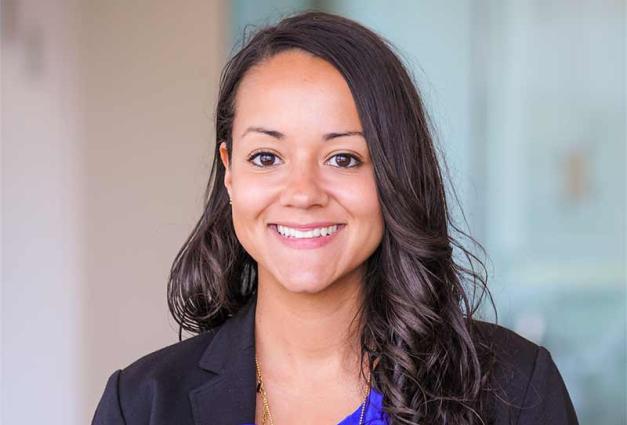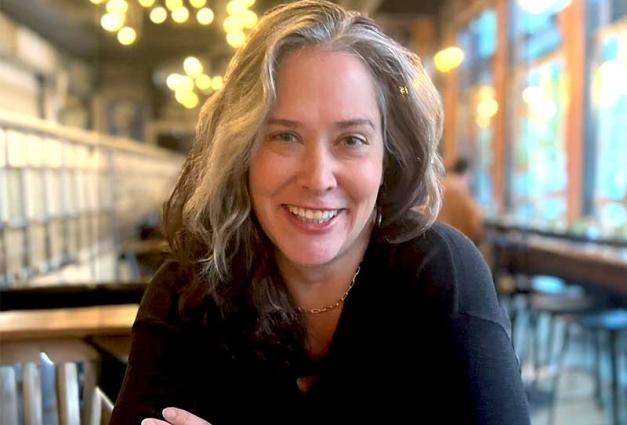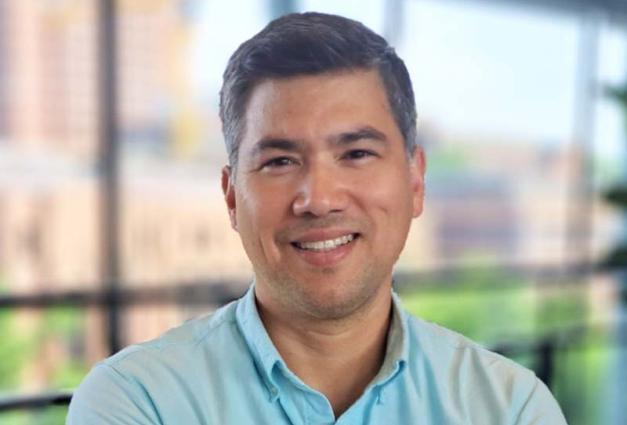Kristin Nicole Dukes is the Dean for Institutional Diversity at Allegheny College in Meadville, PA. Prior to this position, Dr. Dukes was an Associate Professor of Psychology at Simmons University in Boston. She earned her master’s and doctoral degrees in social psychology from Tufts University, and her bachelor’s degree in psychology from Rice University. Dr. Dukes' research focuses on stereotyping, prejudice, and social justice.
What led to your interest in diversity, equity and inclusion (DEI)?
My interest in DEI branches back to my childhood—long before I had language to articulate my interest. I grew up in Greenville, TX, a small town with a history of racial tensions about 50 miles northeast of Dallas. There was an underlying vibe of racial segregation that I struggled to make sense of. I became increasingly aware of racial/ethnic and socioeconomic inequities in access to college preparatory courses in my school district, and by my senior year of high school I started a student organization that advocated for Black students and their academic success. I didn’t realize this was DEI work at the time! Once in college at Rice University, I searched for ways to understand race relations in my hometown and beyond through coursework and extracurricular activities. I became involved with the Office of Multicultural Affairs at Rice—this is where I was formally introduced to DEI work. My interest in this area continued through graduate school and my time as a professor. Ultimately, I hope to apply my knowledge and expertise in social psychology to social justice. This desire motivated my latest career shift from being a professor to becoming a senior diversity officer.
Can you tell us a bit more about this new role at Allegheny College?
As Dean for Institutional Diversity (DID), I serve as the senior diversity and inclusion officer, oversee the Office of Institutional Diversity, and co-chair the College’s Council on Diversity and Equity (CoDE). The DID shapes and implements policies, strategies, and initiatives in support of the College’s commitment to diversity, inclusivity, and equity. For instance, I collaborate with the Director of Human Resources on strategies to recruit and retain employees of color. I also collaborate with other Office of Institutional Diversity staff to provide leadership for the College’s Inclusion Diversity Equity Access & Social Justice (IDEAS) Center. The IDEAS Center provides advocacy and support for historically and systemically underrepresented students and other Allegheny community members. As DID I report to the Provost and Dean of the College, and as a member of senior leadership I have a seat on the President’s cabinet.
What led you to choose a career in social and personality psychology?
Similar to my interest in diversity, equity, and inclusion, my initial interest in social psychology grew from wanting to understand my life experiences, in particular my experiences with race, gender, and body image. Once I was introduced to social psychological theory and research, I had a framework for explaining my life experiences and observations. Social psychology also provided a creative outlet for me. The research process is the ultimate puzzle or mystery for me. I enjoy designing studies, data collection, and data analysis/interpretation. Perhaps this is why I taught research methods every semester as a professor!
What are your research interests and can you tell us about some of your recent work?
My interests lie in stereotyping, prejudice, and social justice. My most recent work has examined the implications of stereotypic media portrayals of Blacks; more specifically the link between stereotypes of Black girls and young women, perceptions of Black girls as aggressive, and entry into the school-to-prison pipeline and how negative, stereotypical portrayals of Black male shooting victims impact attitudes toward the victim and the shooter in these cases. I co-authored an article with Dr. Sarah Gaither (Duke University) published in a special issue of the Journal of Social Issues that I co-edited with Dr. Kimberly Kahn (Portland State University) titled “What social science research says about police violence against racial and ethnic minorities: Understanding the antecedents and consequences” on the latter topic.
Are there other research areas you would like to explore in the future?
The first research project I completed as an undergraduate was on obesity stigma. While working on this project, a professor suggested I consult with Dr. Mikki Hebl. Dr. Hebl introduced me to the idea of pursuing a PhD, but I ultimately shifted my primary research interest to skin-tone bias. I received a Ruth L. Kirschstein National Research Service Award (NRSA) Individual Predoctoral Fellowship to Promote Diversity in Health-Related Research to examine obesity stigma and attitudes toward weight-loss, but my dissertation was not on this topic. I’d like to make my way back to this work again.
When did you join SPSP and how has being a member helped you professionally?
I joined SPSP as an undergraduate student because I was interested in pursuing a career in social psychology and hoped SPSP would give me insight into a career path. Some of my most meaningful collaborations have occurred because of SPSP. For instance, Dr. Kimberly Kahn and I had posters near each other at an SPSP conference very early in our careers. Our brief conversation during that poster session has grown into an invaluable professional and personal relationship. I’ve fostered so many other relationships thanks to the networking opportunities SPSP provides.
Do you have a memorable convention experience?
My most memorable moment occurred at my first convention in 2005 when I was a senior in college. I had submitted graduate school applications a few months prior and was hoping to “bump” into some potential graduate school advisors. I was very shy and intimidated by the entire process of meeting these scholars that I truly admired. I waited sheepishly in a corner for a very long time (maybe an hour) to speak with Keith Maddox. It was worth the wait. I attended Tufts and had the opportunity to work with Dr. Maddox.
What advice would you offer someone interested in a career in social psychology?
I have three tidbits of advice: First, define your own notion of success. Social psychology can be a very competitive field, and it’s easy to become absorbed with comparing yourself to other scholars. Who has the most publications in the top-tier journals? Who has landed a prestigious postdoc or tenure-track position? One of the most freeing things you can do is to create and stand steadfastly by your own definition of success. Stay true to who you are at your core. Second, NETWORK. It may be intimidating to put yourself out there, but networking is key. Find your people, form a collective, and navigate the professional labyrinth together. Lastly, connect with a mentor or even several mentors. Having a trusted team of individuals whom you can confide in, consult with, and learn from is critical. I attribute so much of my success to the unwavering support of my mentors.
Outside of psychology, how do you like to spend your free time?
I am very interested in genealogy. I had the privilege of growing up with my great-great grandmother. She passed away at the age of 98 when I was 18. Having access to so much of my family history left me curious to learn more about my family’s origins. To date, I’ve traced my heritage back 7 or 8 generations in every imaginable direction. Knowing these details has helped keep me rooted.




